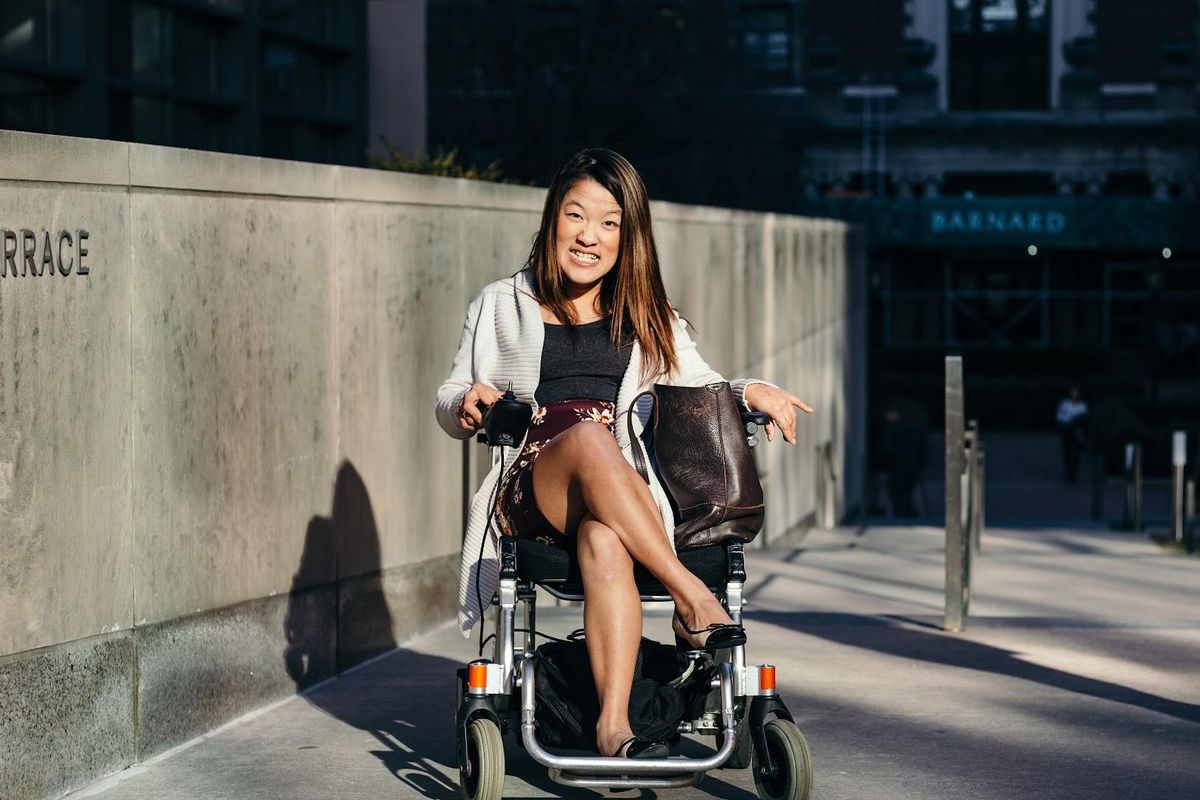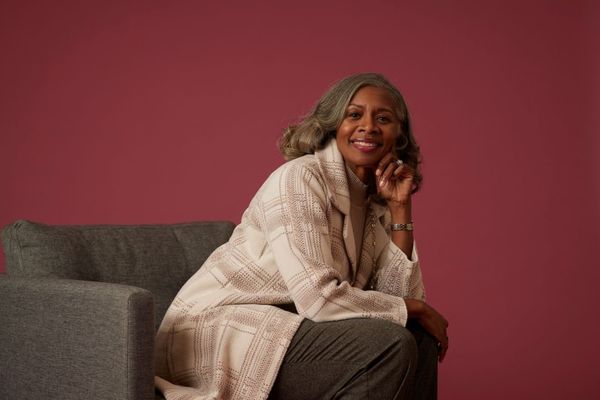December 3 is the International Day of Persons With Disabilities.
On this year’s International Day of Persons With Disabilities, I look back on a pivotal day in my childhood that transformed how I saw myself and my cerebral palsy.
Saturdays were special. As a kid growing up in the suburbs of New York, Saturdays meant Burger King outings with my grandparents, a great big slice of trademarked Hershey’s chocolate pie for me and piping hot oatmeal for them. And we can’t forget about the Happy Meal toys. But on this particular Saturday, everything was different — at the tender age of 5, I started to notice that certain aspects of my life were just off.
While eating my chocolate pie and playing with my Powerpuff Girls toy, I noticed a woman behind us reaching for my grandma’s wallet. My grandparents had just cashed in — what I later realized was — their social security check, and this woman, this thief, was going to take all of it. I opened my mouth to warn them. What came out was far from a complete sentence but rather a smattering cacophony of nonsensical sounds. I pulled on grandma’s sweater, screaming for her attention, but she brushed me off, even going so far as to scold me for interrupting her conversation with my grandpa. I pointed, I exclaimed, I wailed. I never knew that something so loud could be so incredibly silent. It was as if I were trapped inside a soundproof box. For all it was worth, I should have just saved my breath. Steadfastly ignored, I resigned myself to being the only eyewitness to such theft.
My grandparents raised me to believe that I was just like everyone else, but it just didn’t add up. In my head, my voice sounded like the voices of the Powerpuff Girls: articulate, clear and normal (but not as high-pitched as Buttercup). But the perplexed looks on everyone else's faces said otherwise. It was then that I realized that there was a disconnect between my mind and my body. My mouth, tongue and vocal cords physically couldn’t convey my simplest thoughts. This disconnect between my mind and my tongue, although somewhat fascinating, controlled the way I saw my placement in the world and the way others fit me in their own worlds.
In that moment, I became acutely aware of how different I was from my friends and family. I’d like to say that my maturity and comprehension were far more advanced than other kids my age, but this just didn’t make sense to me at all. I then noticed kids were jumping and running in the playroom attached to the Burger King. Meanwhile, I was trapped in my stroller, watching them from afar. I tried to get up, but my legs just didn’t receive the signals from my brain to move. Why am I like this? Why am I so different? I couldn’t wrap my head around any of these speculations and continued to cry out of frustration and desperation.
On the list of words that I did not yet know were cerebral and palsy but over 20 years later, I’ve become so intimate with the term cerebral palsy that it’s become almost synonymous with my name. Cerebral palsy affects each person differently, but in general, it’s a group of movement disorders that affect muscle tone, posture and movements. And in my case, I acquired cerebral palsy due to medical malpractice at birth — I didn’t receive enough oxygen during my first moments of life. Ultimately, that caused damage to the parts of my brain that are responsible for speech, walking and dexterity.
As a child of immigrants, I was always conditioned to assimilate and not draw attention to my differences, including my disability. The elders in my household never used the terms cerebral palsy or disability in my presence. It took until I was 9 to overhear the teachers at my school refer to me as “the student with cerebral palsy.” After school that day, I went straight to my dad’s study to look up the term in his encyclopedia collection.
Of course, how “cerebral palsy” was defined was nonsensical to my fourth-grade self. It’d be a few years until the internet would be readily available for me to read almost every article on this developmental disorder.
Looking back on my childhood as an adult, I often wonder how coming of age might’ve been easier if I’d had the language and knowledge surrounding my disability. But then again, I remember that we live in a society that is aware of very little about disability.
Growing up, my family constantly told me that as long as I went to a good college and got a fulfilling career, people would see less of my disability but more of my accolades and accomplishments. Now, at close to 30, I’ve attained Ivy League degrees from both Barnard and Columbia Journalism School, but the truth be told, even with these accomplishments, I still sometimes feel as helpless and hopeless as I did on that day at Burger King as a 5-year-old. The harsh reality is that no matter how many Ivy League degrees I earn or world-renowned publications I write for, the general public will always be quick to make gross assumptions based on how I walk or talk.
On this day, when we’re supposed to acknowledge and celebrate the disability community, I wish that we could go to the basics. And that is to treat each person who has a disability with the dignity and respect that they deserve. Contrary to my family’s — or society’s — beliefs, nobody should have to earn their way to being treated as a human being just because they might be different than what’s considered “mainstream.”
And we should hold this value every day, not just on December 3.
- On screen and on stage, disability continues to be depicted in ... ›
- Global disabilities map visualizes the strength and power of millions ... ›
- How I Learned to Love Celebrating My Disability - HealthyWomen ›
- Global Disabilities Map Visualizes the Strength and Power of Millions of Athletes Around the World - HealthyWomen ›
- On Screen and on Stage, Disability Continues to Be Depicted in Outdated, Cliched Ways - HealthyWomen ›







